Dundee Michelin tyre factory closes with loss of 850 jobs
- Published
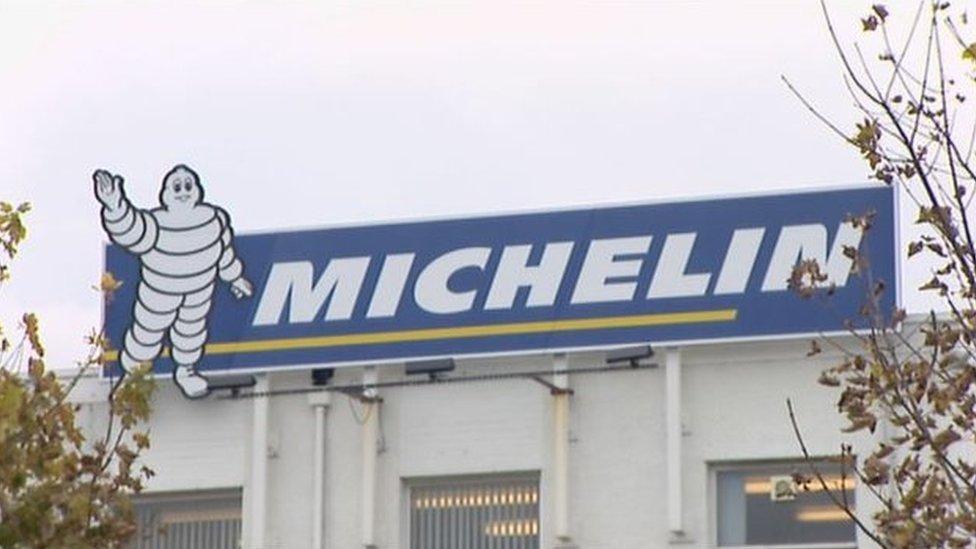
About 850 workers are employed at Michelin's Dundee factory
Michelin is to close its tyre factory in Dundee, with the loss of about 850 jobs, confirming that it will leave the city by 2020.
The company said the factory was "unsuitable" given current market conditions and it would not be financially viable to invest further.
Workers were informed of the decision during a short meeting at the plant at about 08:00 on Tuesday.
They were sent home and told that production will resume on Thursday.
Some employees told BBC Scotland they were angry that they first learned about the decision to close the factory from the media.
The union Unite has said the closure would be a "hammer-blow" to the city.
Michelin said the Dundee site, which opened in 1971 and specialised in smaller tyres, has suffered because of a shift in the market towards low-cost products from Asia.
The company praised its Dundee employees' dedication but said that, in spite of that and its own "continuous efforts" the plant could not be saved.
Scottish government Economy Secretary Derek Mackay will visit Dundee later while the UK government said it "stands ready" to do everything it can.

Analysis by Douglas Fraser, BBC Scotland business and economy editor
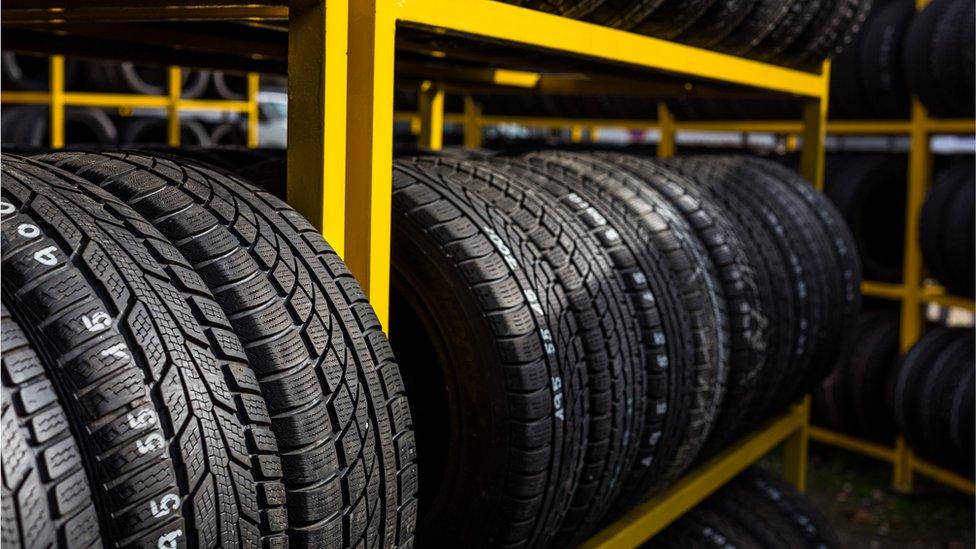
The range of tyres available has increased rapidly in recent years
If you've needed new tyres recently, you probably found that they had to be ordered and trucked from a distant warehouse.
It used to be that you could go into a garage, you might get a choice of three manufacturers, and there and then, the mechanics could haul any of the three off a storage rail.
What used to take 20 minutes now takes days, and often a lot more money.
The change is partly down to the business practice of limiting stock to reduce costs, and having car parts delivered to order. But it has more to do with the growth in the range of tyres.
That seems to be the reason why Michelin has not only punctured hopes for continued employment at its Dundee manufacturing plant, but on Tuesday it is telling its 845 workers that it will have the whole operation up on bricks within two years.

It said its priority now was to provide support for the workers who faced being put out of work.
Michelin said enhanced redundancy packages would be available, with early retirement measures for those at the end of their career.
It also promised "intensive support" for those seeking new jobs, relocation assistance, and skills retraining.
In a statement it said: "In accordance with UK legislation, Michelin will begin a consultation process with employees, employee representatives and the trade union on the closure project, and on social support measures in the next two weeks."
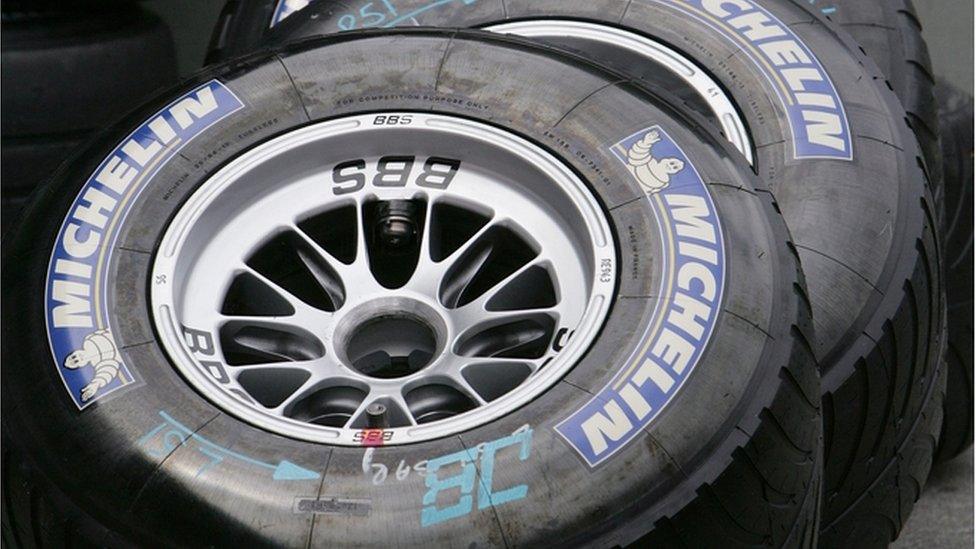
The company has been making tyres in Dundee since 1971
Factory manager John Reid added: "I understand that these proposals will come as a huge blow to our employees and to the city of Dundee as a whole.
"It's also a very personal blow for me. I have been part of Michelin Dundee for 26 years and I am very proud of the hard work and dedication shown by the team here.
"This factory has faced incredibly tough challenges before and we have come through thanks to the hard work and flexibility of our people and the union, and the backing of the Michelin Group.
"However, the market for the smaller tyres we make has changed dramatically and permanently, and the company has to address these structural changes.
Fight 'not over'
The trade union representing many of the Dundee workers said it had not given up the fight to keep the factory open.
Unite's Scottish secretary Pat Rafferty said: "Unite has been aware of the challenging market situation facing the Michelin Group.
"This has been primarily due to the cheap foreign imports from Asia and as a result falling demand for premium tyres in smaller dimensions, which the Dundee factory specialises in producing.
"This will be hammer-blow for Dundee."
He added: "The workforce can be assured Unite will fight tooth and nail to save our factory, we will leave no stone unturned to keep this factory open.
"Unite will work day and night to ensure that all options remain on the table."
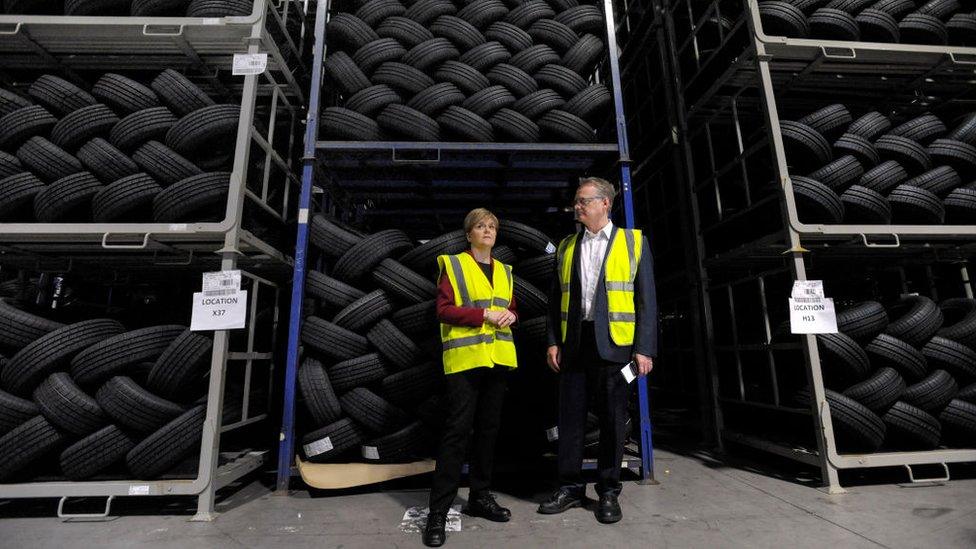
Nicola Sturgeon met manager John Reid on a tour of the Michelin factory in June 2017
Michelin is Dundee's largest industrial employer, and was boosted three years ago when the firm announced a £50m investment in new machinery.
Last year First Minister Nicola Sturgeon visited the factory as Scottish Enterprise confirmed it was investing £4.5m in the plant.
At the same time Michelin said it was committing £12m to a project which would help the site meet demand for larger tyres.
In September the firm warned that jobs could be lost at the plant in the face of "extremely challenging trading conditions" but it did not raise the prospect of its closure.
A UK government spokeswoman said: "This is a hugely difficult time for the Michelin workers and their families. The UK government is in touch with the Scottish government and other local partners, and stands ready to do everything it can to help.
"In particular we are reviewing how we invest the £150 million we are putting to the Tay Cities Deal, to make sure that the Deal can respond to this challenge."

The Scottish economy secretary is planning a series of meetings in Dundee
For the Scottish government, Mr Mackay said he would be in Dundee on Tuesday, where he hoped to meet representatives of the workforce, the city council and the management team.
He said: "My immediate priority is on trying to find a sustainable future for the site, that will protect jobs and I will leave no stone unturned.
"I was informed at the end of last week of the possibility of closure and immediately sought discussions with the senior management team at Michelin.
"I know the workforce and unions have gone to immense lengths to make the plant as competitive as possible to secure its future, and we will leave no stone unturned in trying to protect the future of the Dundee site."
The leader of Dundee City Council, John Alexander, said: "Michelin is part of the fabric of this city.
"I'll be working with colleagues and officials to clarify the situation and will work with whoever is necessary in the best interests of the entire workforce and their families.
"Dundee always rallies behind its own and we will again."
- Published10 September 2018
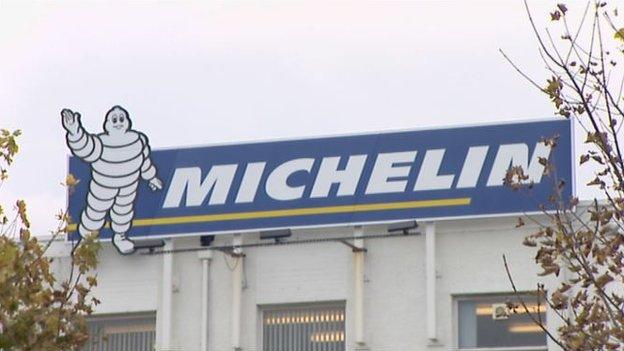
- Published3 November 2015
